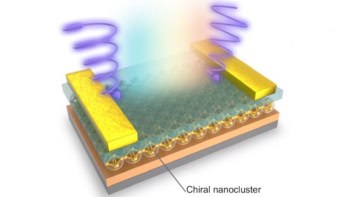Laser-based positioning systems are set to become more accurate thanks to the quantum effect known as 'entanglement'. Seth Lloyd and colleagues at the Massachusetts Institute of Technology have used entangled lasers to overcome a fundamental limit on the accuracy of 'classical' positioning systems for the first time (V Giovennetti et al 2001 Nature 412 417).
Conventional positioning techniques measure the time it takes for laser pulses to travel between a reference point and the location in question. The accuracy of this method relies on how precisely the arrival of the pulses can be timed. But in practice, light pulses from a laser consist of a range of frequencies, and the wider this range, the less accurately the arrival of the pulse can be timed. This is because different wavelengths travel at slightly different speeds.
Lloyd and colleagues realised that the use of entangled pulses would allow them to side-step this limit. In general, quantum entanglement allows correlation between particles that are much stronger than those allowed in classical physics. In the MIT experiment, the frequencies of all the photons in the entangled pulse are intrinsically linked. This means that the arrival times of the photons are bunched together, which allows the time of arrival to be determined more precisely.
However, this relationship makes the quantum technique fragile, because all of the information is lost if a single photon does not reach the detector. In contrast, conventional techniques measure the arrival of individual photons. Lloyd’s team claims to have addressed this problem by using ‘partially entangled’ photons that are less sensitive to the loss of photons, but these results are unpublished. Nevertheless, Lloyd and colleagues assert that their ‘fully entangled’ technique is still a significant improvement on conventional methods, and could also be used to synchronise clocks more precisely than ever before.
“Quantum positioning is unlikely to replace global positioning systems in the near future”, Lloyd told PhysicsWeb, “but as techniques for making these funky quantum pulses improve, quantum positioning systems are likely to be used where high accuracy and low power are important, for example, satellite positioning”.


